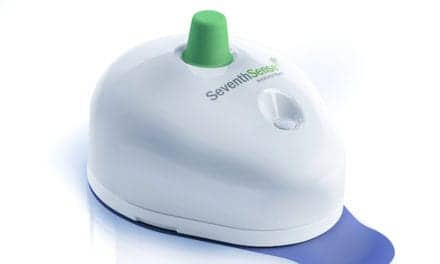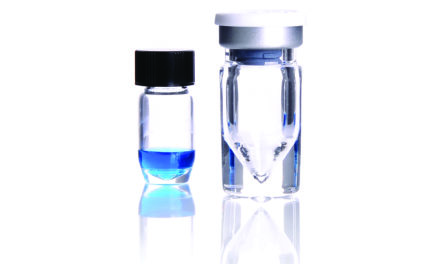Key laboratory associations weigh in on the issue of laboratory-developed testing procedures
Interview by Steve Halasey
In the middle of June, a group of 17 laboratory professional associations and academic medical centers joined forces in opposition to the proposed Diagnostic Accuracy and Innovation Act (DAIA), which had earlier received the support of a competing group of diagnostics stakeholders. The opposition group—including the American Association for Clinical Chemistry (AACC), the American Medical Association, and the Association for Molecular Pathology—framed its views in a letter sent to the chairs and ranking members of the House Energy and Commerce Committee and Senate Committee on Health, Education, Labor, and Pensions.1
To find out more about the views of these stakeholders, CLP recently spoke to Dave Koch, PhD, DABCC, FAACC, professor of pathology and laboratory medicine at Emory University; director of clinical chemistry, toxicology, and point-of-care testing at Grady Memorial Hospital; and chair of the policy and external affairs core committee for the American Association for Clinical Chemistry (AACC).
CLP: The June letter sent by AACC and other stakeholder organizations calls on Congress to “engage with all stakeholder groups to develop consensus legislation that would modernize the oversight of laboratory-developed testing procedures.” Do the signatories believe that legislation is necessary? Do you expect that stakeholder engagement will take the form of congressional hearings, or something else?
Dave Koch, PhD, DABCC, FAACC: I can’t speak for the other groups, but from AACC’s perspective we would prefer taking a regulatory approach first, and then, if necessary, legislation. If Congress decides to move forward in this area, we hope that its members will consult with professionals in the field before they draw up legislation that perhaps makes sense to some, but could have unintended consequences for patients. I think all the signatories of the letter would agree that patients and their care are our primary concerns, and some of the proposals out there could have dire consequences for patients.
CLP: The letter is highly critical of the proposed Diagnostic Accuracy and Innovation Act (DAIA), and asserts that passage of that legislation would result in significant harms to the clinical laboratory community—and ultimately, to patients. What elements of that proposal do the signatories consider most objectionable, or most damaging?
Koch: The issue of oversight for laboratory-developed tests (LDTs) is the main sticking point. The DAIA approach would stifle the work of laboratory professionals who have up to now been responsible for developing new tests, improving patient care, and providing laboratory support for patient care that might not otherwise have been available—or would have been delayed by at least several years. It takes quite a while for manufacturers to identify the need for a new test, figure out what kind of test would fulfill that need, add the test to one of their platforms, submit it to FDA for approval, and then market it. All of those delays are avoided by the existing lab-developed test approach.
Historically that approach has been very successful. It has enabled academic researchers and laboratory medicine professionals to develop tests and come up with new approaches to meet clinical needs as they arise. A good example would be the recent outbreaks of Zika virus in South and Central America. All of the best tests for the detection of Zika virus produced within weeks of the Department of Health and Human Services declaration of a health emergency were laboratory-developed tests.
Don’t get me wrong. AACC and other organizations have a very healthy relationship with in vitro diagnostic vendors. But it would be a much slower process for a manufacturer to bring a new Zika test to market.
CLP: What are the key elements of these reform proposals that create difficulties? Is it the increased costs they might bring about? Their greater paperwork and regulatory burden? Their increased review and inspection obligations? In short, what is it about these suggested regulatory schemes that most gets in the way of lab-developed tests?
Koch: If FDA were to take over regulating LDTs, the result would be an increased regulatory burden and increased costs. Most laboratory medicine professionals who have tried to develop an LDT had no intention of commercializing that product. They were just trying to meet the needs of the clinicians and patients at their institution, and to improve patient care.
Under the reform proposals, the regulations and costs that laboratorians would have to meet would certainly stifle that work, if not prevent it from ever happening. And patient care would be diminished accordingly.
CLP: The Association for Molecular Pathology (AMP), has argued eloquently that the central issue is not the regulation of tests, but oversight of ‘laboratory-developed procedures’—that is, of testing processes developed and performed by highly trained laboratory professionals to meet the immediate needs of a rather limited patient population. As such small-scale activities are successful and are made more broadly available, is there a point at which they turn into commercialized tests?
Koch: Although that distinction is helpful, it is sometimes applied arbitrarily. But AMP is onto something, because the notion of a procedure requires that the person who developed the test be personally on top of how it is performed, making sure that the steps are performed correctly, that the result is validated, and that the test will actually contribute to patient care.
That’s quite different from the notion of a commercial in vitro diagnostic, which can be made available in any appropriately certified laboratory and performed by any clinical lab professional with appropriate credentials.
But is there a point at which a lab-developed procedure becomes a commercialized lab-developed test? I don’t know. That’s tougher to nail down.
CLP: Another issue raised in connection with the proposed Diagnostic Accuracy and Innovation Act is the idea of setting up a whole new FDA center to regulate laboratory-developed tests. What is AACC’s thinking about FDA or another agency having an office dedicated to regulating these products?
Koch: That is a concern for AACC and for many professionals in the field of laboratory medicine. We may need to improve the existing medical device regulations as they apply to in vitro diagnostic products, and AACC has expressed willingness to work with stakeholders that have an interest in streamlining those regulations. But that issue is separate and apart from the controversy over LDTs, and asking FDA to take on the burden of an entirely new office or division, with all the support that would be required, seems counterproductive.
CLP: The letter says, “We stand united in support of modernizing the oversight framework for high-complexity clinical laboratory developed testing procedures, but primarily through reform of the Clinical Laboratory Improvement Amendments (CLIA).” Are there key parts of CLIA whose modernization would accomplish a lot of what people are trying to do in this area?
Koch: CLIA could be modernized. But I would hope that policymakers would first try to improve the regulations using the existing statutory authority before passing a new law. The Department of Health and Human Services and its various agencies should be able to work on these issues and improve the whole approach to validation and approval of medical diagnostics.
CLP: So you think necessary reforms can be accomplished through the relevant agencies—the Centers for Disease Control and Prevention, the Centers for Medicare and Medicaid Services (CMS), and FDA—without requiring legislation?
Koch: Yes. It ought to be possible to accomplish reforms through the existing agencies, rather than having Congress do it through the legislative approach. However, if new legislation is needed, we are willing to work with Congress to get it right.
CLP: What kind of input would be required from the lab community, and how would that input be formalized and evaluated for inclusion among the proposed reforms?
Koch: Many of the reform issues, such as the proposed regulation of laboratory-developed tests, have been under discussion for many years. Perhaps now there are some people who have thought more deeply about the issues and are prepared to take a different approach. CMS could certainly reach out to stakeholders and seek input on how the LDT process could be strengthened.
CLP: Do you think the proposed Diagnostic Accuracy and Innovation Act can be refined to form an acceptable set of reform measures, or should it be set aside in favor of some other process or proposal?
Koch: AACC regularly visits Capitol Hill, giving us an opportunity to talk with members of Congress and their talented healthcare staff. They’re all intelligent, engaged people who really want to do the right thing. We don’t believe that DAIA should be the starting point for discussions, and we don’t treat it as such in our conversations on the Hill.
CLP: Are all of the signatories to the letter working with Congress or with federal agencies to advance their collective view?
Koch: Many are engaged and have advocates who work in the DC environment. Like AACC, a lot of the associations that signed this letter are showing up at Congress and arguing on behalf of certain positions related to these topics. Hopefully, that means that Congress and congressional staff members are listening and incorporating association input into their thinking and their plans.
CLP: The issue of oversight for laboratory-developed tests has been percolating for decades. Are there any pressing deadlines or opportunities that make it likely the issue will be addressed in a foreseeable timeframe of, say, 6 months to 2 years?
Koch: In general, I don’t see that there’s a major need to move forward right now. Congress has plenty of other issues on its plate, and I would guess that reform of clinical laboratory oversight is not near the top of its list.
So congressional action is unlikely in the near term, but we are open to working with the agencies and Congress to address any concerns about LDTs.
CLP: Is the likely path more discussion and work to make sure that all stakeholders are engaged?
Koch: Yes absolutely. And then we’re all likely to be at least somewhat pleased with the outcome, as opposed to totally disappointed. Part of the problem with these reform proposals, and the reason why the effort is taking so long, is that there’s still nothing that represents a consensus of all the major stakeholders. Several different approaches have been proposed, and some people like one approach while others favor a different approach. But the idea that anything out there right now is built on consensus is just not accurate.
CLIA oversight of lab-developed tests, with inspections carried out by the College of American Pathologists (CAP), is an approach that has been shown to work, and one that many in the medical field would favor. The details may need a little fine-tuning, but some approach along these lines is essentially what the signatories to this letter are advocating.
FDA and others from the regulatory side would like the agency to take over the regulation of LDTs, and that’s a whole different approach. There may be some elements of this approach that have merit. But it would definitely add complexity, and would likely prolong patient suffering while awaiting test approvals. And those are consequences that no one favors.
Avoiding patient suffering is certainly an important objective for AACC and its partner organizations. Unquestionably, the healthcare professionals that are members of these organizations are committed to patients and patient care. So advocating for policies that will improve patient care is a natural focus. So far, the reforms described under the heading of the proposed DAIA legislation don’t seem likely to satisfy that goal.
Steve Halasey is chief editor of CLP.
Reference
- Letter to the Chairs and Ranking Members of the House Energy and Commerce Committee and Senate Committee on Health, Education, Labor, and Pensions, Re: Diagnostic Accuracy and Innovation Act. Washington, DC: American Association for Clinical Chemistry, 2018. Available at: www.aacc.org/-/media/files/health-and-science-policy/legislative-issues/2018/stakeholdersignonletterlaboratorytestingoversight62118.pdf?la=en&hash=fc5c79b74e14d313755ae32e01e53a61968bccae. Accessed July 5, 2018.





